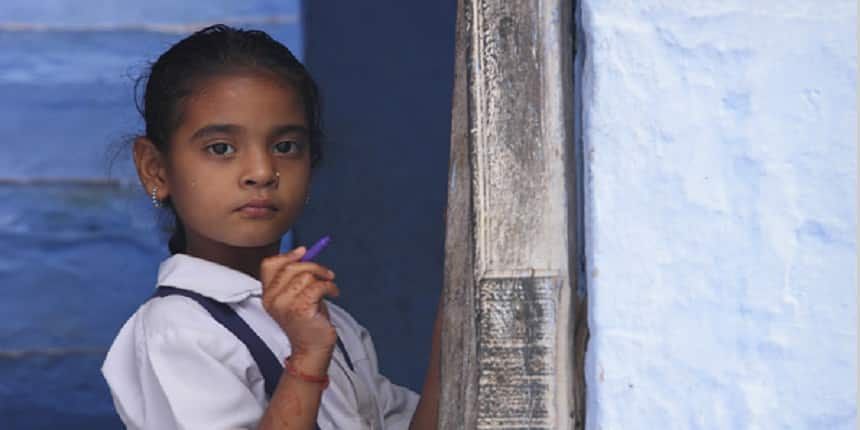Three years of NEP 2020: A status check of top 10 initiatives
Press Trust of India | July 30, 2023 | 06:07 PM IST | 4 mins read
PM Narendra Modi inaugurated the Akhil Bhartiya Shiksha Samagam to mark the three years of the launch of the new National Education Policy (NEP).

NEW DELHI: Three years since the new National Education Policy (NEP) was notified, replacing the 34-year-old education policy in the country, several initiatives have been rolled out by the Centre. Here is a status check on the top 10 initiatives proposed in the National Education Policy (NEP), 2020.
Prime Minister Narendra Modi inaugurated the Akhil Bhartiya Shiksha Samagam on July 29 to mark the three years of the launch of the new National Education Policy (NEP).
1. NCF for Foundational Stage
National Curriculum Framework for Foundational Stage (NCF FS) is the first ever integrated curriculum framework for children between ages three and eight in India. "Jadui Pitara: Learning Teaching Material" based on NCF FS was launched in February. It includes play-based learning-teaching material tailored for children between the age group of three to eight.
2. Vidya Pravesh
The NCERT has developed a three-month play-based school preparation module for Class 1 named "Vidya Pravesh". The module is essentially around 12 weeks of developmentally appropriate instruction for children entering Class 1 to bolster a child's pre-literacy, pre-numeracy, cognitive and social skills. So far, 33 states and Union Territories except Sikkim, Manipur and Kerala have implemented Vidya Pravesh from the year 2022-23.
3. PM Schools for Rising India (PM SHRI)
The prime minister released the first instalment of funds under the PM SHRI scheme on July 29. The schools under the scheme will nurture students in a way that they become engaged, productive and contributing citizens for building an equitable, inclusive and pluralistic society, as envisaged under the NEP.
4. Promotion of Indian languages in education
The All India Council of Technical Education (AICTE) has permitted 49 engineering courses across 12 states in seven regional languages. An MBBS course has been started in Hindi. The Common University Entrance Test has been conducted in 13 languages while JEE-Main and NEET (UG) are conducted in 13 languages. Textbooks are being translated into multiple Indian languages through AI-based app Anuvadini, developed by AICTE. Similarly, the NCERT is in the process of producing textbooks in 22 scheduled Indian languages to initiate teaching-learning through Indian language medium in addition to English medium in CBSE schools.
5. Dual degree
The University Grants Commission (UGC) notified guidelines for students to pursue two full-time academic programmes in physical mode provided that in such cases, class timings for one programme do not overlap with that of the other. It is not applicable for PhD programmes.
Also Read | Explainer: How UGC’s dual-degree programme will work – admissions, exams, credits
6. 'Professors of Practice' in universities, colleges
Universities and higher education institutions (HEIs) can now hire distinguished experts as faculty members under a new category for which formal academic qualification and publication requirements are not mandatory. A dedicated portal for Professors of Practice has been launched by the UGC, having 6711 registered experts and 152 registered HEIs.
Also Read | How ‘professors of practice’ helped shape management education
7. Four-year Undergraduate Programme (FYUP)
A total of 105 universities, including 19 central universities, have started the FYUP from the 2023 academic session. The NEP has recommended that the undergraduate degree be of either three- or four-year duration, with multiple exit options within this period, and appropriate certifications -- an undergraduate certificate after completing one year in a discipline or field, including vocational and professional areas, or an undergraduate diploma after two years of study, or a Bachelor's degree after a three-year programme.
Also Read | FYUP Ka Report Card: 4,000 DU students demand rollback, 68% may discontinue if fees hiked
8. IITs setting up campuses abroad
The Indian Institute of Technology (IIT)-Madras is setting up a campus in Tanzania's Zanzibar that will begin its first academic session in October. IIT-Delhi has also signed an MoU with the UAE for setting up a campus in Abu Dhabi. IIT-Kharagpur is in the process of setting up a campus in Malaysia.
9. Foreign universities setting up campuses in India
The guidelines for foreign universities to set up their campuses in India are in the final stages and are likely to be notified within a month. The draft guidelines were put in the public domain in January. Two Australian universities -- Wollongong and Deakin -- have already signed MoUs to set up their campuses in Gujarat's GIFT City.
Also Read | Explainer: How will the proposed HECI change higher education?
10. Higher Education Commission of India (HECI)
The NEP proposed the idea of a single higher education regulator, which will integrate three bodies -- the UGC, AICTE and the National Council for Teacher Education (NCTE). The modalities are still being worked out and the bill is yet to be tabled in Parliament.
Follow us for the latest education news on colleges and universities, admission, courses, exams, research, education policies, study abroad and more..
To get in touch, write to us at news@careers360.com.